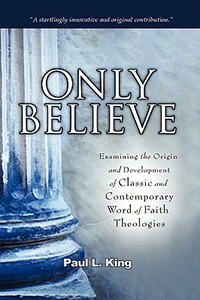Recently, we had a house blessing and prayer meeting to dedicate our new home and my new state of “semi”-retirement to the service of the Lord. I don’t know what all the Lord has in mind, but we want our lives and our home to be a blessing to others. The Lord has given us a beautiful home with a pond as our backyard—a natural retreat center.
One of the people who helped to pray over and dedicate our home was one of my doctoral students, an engineer called to ministry later in life, whom I mentored through an intensive 3-year Doctor of Ministry program. Whether it was prophetic or not, as I shared what was on my heart, and we anointed and prayed over my office and library, he said he believed that my ministry was to be as a mentor to impart wisdom and knowledge from 50 years of ministry, just as I had to him and the other students.
It was incredibly humbling and challenging to be a mentor both spiritually and academically to 25 professional people from all walks of life, ranging in age from 30s to 60s—ministers, chaplains, medical doctors, lawyers, social workers, psychologists, engineers, educators, professors, and more! They would test my mettle as I would theirs.
As I have been reflecting over what he shared, I was thinking about what I have learned both by being a mentor and being mentored through the years. Through these next few blogs, I will share my reflections. Here are a few random thoughts:
- We all need mentors. Even mentors need mentors. Every pastor needs a pastor.
- Being mentored means being a disciple. The word mentor and the Greek word for disciple come from the same Greek root.
- We don’t know how to mentor if we ourselves have not been mentored.
- Mentors are imperfect, so we need to be careful not to put them on a pedestal. We are imperfect as mentors and should not let others put us on a pedestal.
- Related to this, mentors will fail you. Again, you will fail others as a mentor.
- Being mentored means spending time with the mentor, seeking out your mentor, not expecting your mentor to seek you.
- Being mentored is not just being taught, but learning by example and observation.
- There needs to be a symbiosis between mentor and mentee. They need to be able to connect
- Although we may seek a mentor, the mentor really chooses us. Jesus chose His 12 disciples. They did not choose Him. Some of my mentors chose me.
- A mentee seeks to listen, not to guide or dominate the relationship and conversation.
- In one sense, our first mentors are usually our parents. My first mentors were my mother and father.
- Some of my mentors were for only a brief time but had significant impact on my life. others were for longer periods of time.
- Some are occasional or casual—monthly, quarterly, etc. Others are more intensive—perhaps weekly or for extended or concentrated times.
- There are different types of mentoring and different levels or degrees of mentoring. Some are more coaching rather than mentoring; some are less directive, others more directive. The ones who had greatest impact on my life did not beat around the bush. Some might call them blunt. I guess that is why some think I am too blunt.
- Sometimes we surpass our mentors. And those whom we mentor will surpass us.
- Sometimes we don’t get along with our mentors and disagree with our mentors. Paul and his mentor Barnabas clashed sharply and departed from each other for a time.
- Some mentoring is planned, intentional; other mentoring is unplanned, unintentional and more spontaneous.
- Robert Coleman’s The Master Plan of Evangelism has been my main model for discipleship and mentoring through the years.
In the next few blogs, I will share about some of the most significant mentors in my life, their insights, and impact on my life.
“The things which you have heard from me in the presence of many witnesses, entrust these to faithful people who will be able to teach others also.”–2 Timothy 2:2, NASB.



Brian Heinen
So thankful that you have had opportunity to mentor so many disciples who are making disciples.